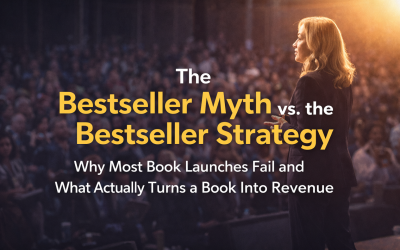The book publishing world is undergoing a seismic shift with the rise of artificial intelligence (AI). AI’s ability to generate content and streamline processes has inflated the book market, creating both opportunities and challenges. From speeding up book production to flooding digital marketplaces with low-quality, AI-generated works, this innovation is reshaping the industry in ways that can’t be ignored.
The Race for Speed: AI in Publishing
AI is now a key player in publishing, particularly in self-publishing and tech-driven imprints. Take Spines, a new publishing entity aiming to release 8,000 books annually by 2025—four times more than industry giant Simon & Schuster. Using AI for editing and distribution, Spines can help writers publish books in under three weeks for as little as $5,000.
Similarly, Microsoft’s 8080 Books is leveraging technology to “accelerate the publishing process,” reducing the time between a manuscript’s completion and its release. Even ByteDance, the parent company of TikTok, is launching a publishing arm to capitalize on trends like BookTok.
AI is also transforming translations. Dutch publisher Veen Bosch & Keuning and Stockholm-based Nuanxed are harnessing AI to bring foreign-language books into English-speaking markets. This technology speeds up the translation process, especially for book series where AI learns from previous volumes.
The Downside: Flooding the Market
However, not all AI contributions are positive. Digital platforms like Kindle are seeing an influx of AI-generated content, often low in quality. Examples include AI-written books flooding Amazon and summaries that lack depth or even accuracy. Public libraries are also receiving questionable titles, such as a diet book recommending “straight marinara sauce for lunch.”
This glut of low-quality material risks overwhelming readers, making it harder to find well-crafted books amid the noise.
Big Publishers: Resistance and Adaptation
Established publishers have been cautious about AI. Companies like Penguin Random House and Hachette UK focus on human creativity and responsible innovation, while emphasizing the protection of intellectual property.
The fear of AI learning from copyrighted material has kept some companies at bay. Still, publishers like HarperCollins are beginning to explore agreements that allow AI to train on select materials with author consent. MIT Press is also seeking feedback from authors about potential collaborations with AI companies.
Despite these cautious steps, major publishers must adapt to stay relevant as AI accelerates the industry’s pace.
Why Choose a Small Publisher?
In a world where technology and AI are reshaping the book publishing industry, partnering with a forward-thinking publisher can make all the difference. At Elite Online Publishing, we stay at the forefront of technological advancements, leveraging the latest AI tools and systems to optimize every step of the process—from writing and editing to publishing and marketing. Our personalized approach ensures you’ll have access to cutting-edge resources while benefiting from a hands-on team dedicated to your success.
Unlike larger publishers bogged down by bureaucracy or purely AI-driven models that lack a human touch, we combine the best of both worlds. Our expertise allows you to focus on your vision while we streamline the details, helping your book reach its fullest potential. Whether you’re a business leader looking to grow your brand or an author with a story to share, Elite Online Publishing offers a seamless, innovative experience tailored to meet your needs.
Discover the difference of working with a small publisher that prioritizes quality, technology, and your unique voice. Let’s bring your book to life and make it a success! Learn more about Publishing in 2025 on our Youtube Channel.
FAQ:
Q: How is AI used in publishing today?
AI is being utilized to streamline editing, accelerate translations, and even generate content for books and summaries. It’s particularly prevalent in self-publishing and new tech-driven imprints.
Q: Does AI threaten traditional publishing?
AI’s push for speed and volume creates challenges for traditional publishers, such as competition from AI-driven imprints and concerns over intellectual property. However, many traditional publishers are cautiously exploring AI partnerships.
Q: Are AI-generated books high quality?
While some AI-generated works offer value, many lack depth and accuracy, leading to an influx of subpar content on digital platforms. This can make it harder for readers to discover well-written books.
Q: How does AI help with translations?
AI-powered tools can significantly speed up the process of translating books into different languages, particularly for multi-book series where models learn from prior translations.
Q: What’s the future of AI in publishing?
AI will likely continue to grow in influence, pushing publishers to adapt their processes while maintaining a balance between human creativity and technological efficiency.





![[New Release] Entrepreneur Secrets by Peter Remington](https://eliteonlinepublishing.com/wp-content/uploads/2026/02/Remington-New-Release-Elite-Blog-Post-400x250.png)
0 Comments